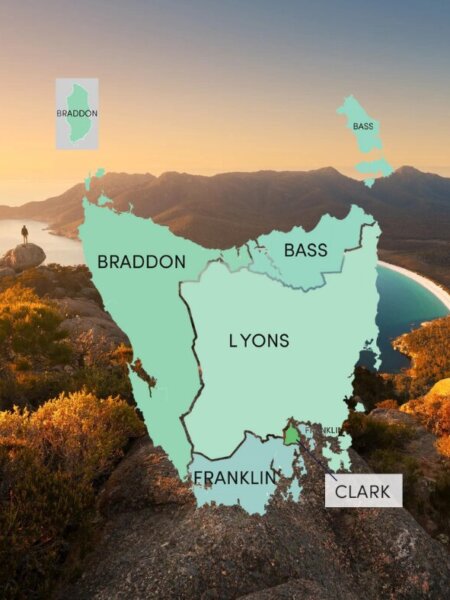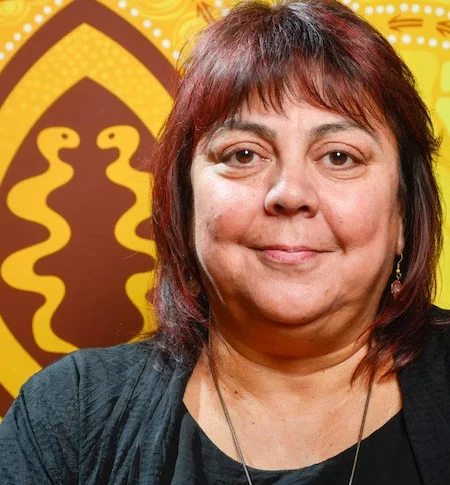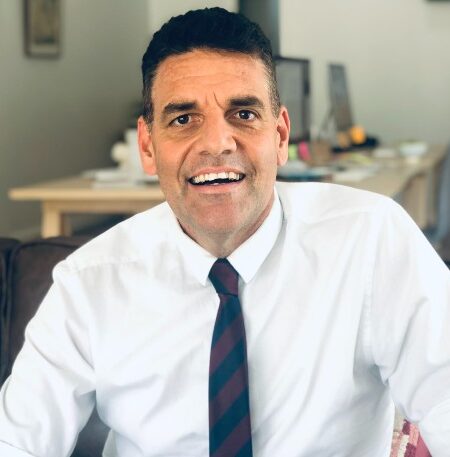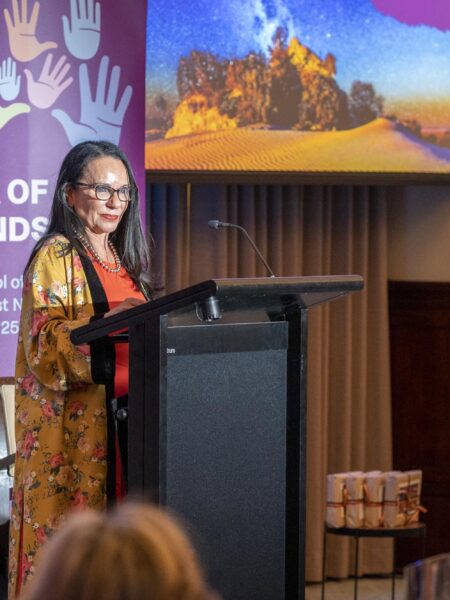The budget has been declared by some as a ‘win’ for First Nations people, with the expected funding for treaty consultations, plus targeted funding for closing the gap initiatives and Stolen Generations survivors. However, spending on affordable and social housing has fallen short, leaving too many Aboriginal communities without access to secure and healthy homes.
Treaty
The Minns Labor government has previously committed to progressing treaty in NSW, with First Nations people set to lead the process. NSW Labor’s election platform spoke to the establishment of a treaty commission that would guide consultations and ‘explore ways to ensure that treaty or treaties can extend and complement existing rights and interests’. The government’s intention is to legislate formal treaty-making following the talks.
Speaking on treaty in the lead-up to the 2023 election, then opposition leader Chris Minns said:
That conversation with First Nations people must begin… We cannot be one of only two states in the entire country that hasn’t begun a process to treaty in Australia.
The 2023-24 Budget delivers the promised $5 million to undertake a 12-month consultation to inform a pathway to Treaty. The NSW government is taking steps in the right direction towards a mature relationship with First Nations Peoples and while it’s better late than never, this should be seen as a bare minimum seed funding investment to explore treaty possibilities with Aboriginal peoples from across the State.
Closing the Gap
Also considered a budget ‘win’ for First Nations people is the $131.4 million allocated to 28 Closing the Gap initiatives to improve Aboriginal and Torres Strait Islander life outcomes.
Realistically, this is a belated fulfilment by the NSW government to meet its obligations under the 2020 National Agreement on Closing the Gap. States and Territories committed to funding programs and services aimed at achieving equity for First Nations people in health, education, employment, housing and more, by (the new target of) 2031. Much more needs to be invested but, like treaties, this is a start.
In consultation with Aboriginal communities, the former NSW government through its 2022-24 Implementation Plan for Closing the Gap identified 142 initiatives to support that align with targets and priority areas, “recognising that NSW is not on track to deliver its Closing the Gap socio-economic outcome targets, with less than a quarter of these targets tracking in a positive direction in NSW.” The new Labor government needed to resource that implementation plan.
This funding includes $34 million to tackle over-representation in the out-of-home care and justice systems. First Nations children are 10.5 times more likely to be in out-of-home care in NSW than non-Indigenous kids, perpetuating intergenerational trauma and harm. Advocates have called this a continuation of the Stolen Generations that will undoubtedly become a burgeoning humanitarian as well as financial crisis for the State if not turned around.
Similarly, the stream of Aboriginal children as young as ten directed into juvenile justice systems must be stopped. There was a 28.4% increase in First Nations kids entering the NSW system in the 12 months prior to March 2023. With evidence pointing to system exposure increasing the chance of reoffending, the ‘highest on record’ over-representation of First Nations people in NSW prison systems is a direct flow-on effect.
Governments comprehensively funding Aboriginal community-controlled service delivery and support systems to address inequality is a long established, evidence-based no-brainer and the first way to approach closing the gaps with any hope of success.
Stolen Generations
The NSW government has committed $5 million over 10 years to the Stolen Generations Healing Fund, termed “collective reparations through healing initiatives”. The 2023-24 Budget allocates $3.4 million for the Stolen Generations Keeping Places project as part of this initiative. This funding is vastly inadequate considering the long term cascading consequences of child removal and intergenerational trauma. The Make Healing Happen Report (2021, p21) points to how Stolen Generation Survivors “form a significantly disadvantaged subgroup within the already disadvantaged Aboriginal and Torres Strait Islander population,” – the ‘gap within the gap’. The level of funding allocated to Stolen Generations survivors to date shouldn’t be considered ‘reparations’, collective or otherwise.
Ongoing funding to care for and support Stolen Generations survivors is essential, however the State must also properly address the issue of compensation for individuals and unique circumstances. The NSW Stolen Generations Reparations Scheme, which ran from 2017 to June 2023 and provided survivor compensation, has been criticised for its eligibility limitations (p7-9) and is now closed.
In early September 2023, it was reported that multiple likely unmarked grave sites had been discovered at the Kinchela Aboriginal Boys Training Home, near Kempsey on the mid-north coast. The report constitutes ‘sensitive sorry business’ and there have been calls from the Community for further excavations. A Statement from the Kinchela Boys Home Aboriginal Corporation called for truth and justice, with Chairperson Michael ‘Widdy’ Welsh, saying:
(Government) policies took us away from our families. I want their policies to give us back our heritage and build back our families…The government needs to give us resources so we can make our families and communities strong again.
Federal compensation schemes for stolen generations survivors in the NT and ACT have been implemented in recent years and the Victorian government opened applications for its Stolen Generations Reparations Package in March 2022. In international cases similar to the Kinchela findings, such as the discovery of mass graves of First Nations children at residential schools in Canada, the government is acting with large scale compensation programs, although these have also been criticised by advocates for not going far enough. Australia’s governments must progress down a similar path as part of national and State-based truth-telling process, but how long that will take is an open question. The NSW Government’s baby steps towards treaty in this budget do not bode well for the timeline towards a State based truth-telling body or meaningful reparations.
Housing
The NSW Budget 2023-24 has a strong focus on housing and infrastructure with $2.2 billion committed across the board. However, advocates for social and affordable housing are aligned in their views that the budget ignores this most pressing area, saying the $224 million allocated only “scratches the surface”. The Community Housing Industry Association welcomes all funding but has requested $6 billion over four years to address the 56,000 families and individuals on the public housing list in NSW currently, so here too the 2023-24 Budget falls well short.
Housing has long been identified as a foundational aspect of social and economic security for communities, and particularly for Aboriginal and Torres Strait Islander communities who experience disadvantage on multiple fronts. Improved housing is also a key commitment under Closing the Gap agreements, The NSW 2023-24 budget does allocate $55.3 million to Services our Way, supporting vulnerable First Nations communities mainly in regional NSW with housing and other services. Still, governments across the country are unlikely to reach targets without the necessary investments and there has long been a shift away from Aboriginal-specific housing funding.
ANTAR’s recent Submission to the Inquiry into the Worsening Rental Crisis in Australia points out:
Secure, affordable and culturally responsive housing is the foundation for improving life outcomes for Aboriginal and Torres Strait Islander peoples and for breaking cycles of disadvantage… The shortage of affordable housing, barriers to housing access and inadequate attention to tenancy sustainment create a revolving door of housing and homelessness for many First Nations people.
It’s hard to judge a government on its first budget and the story of this NSW Labor government will be told in how it invests for the long term to support First Nations communities across the State. With its 2023-24 Budget, the NSW government has attempted to course correct and play catch up with other States and Territories in talking treaty with First Nations people. To some justifiable extent, this process has been paused until after the Voice Referendum to be held on 14 October, 2023. In a post-Referendum Australia, hopefully the NSW government can move quickly from a laggard to a leader in the work of treaties and truth-telling – and addressing the inequities in communities and closing the gap – with the guidance of the First Nations Voice to Parliament.




